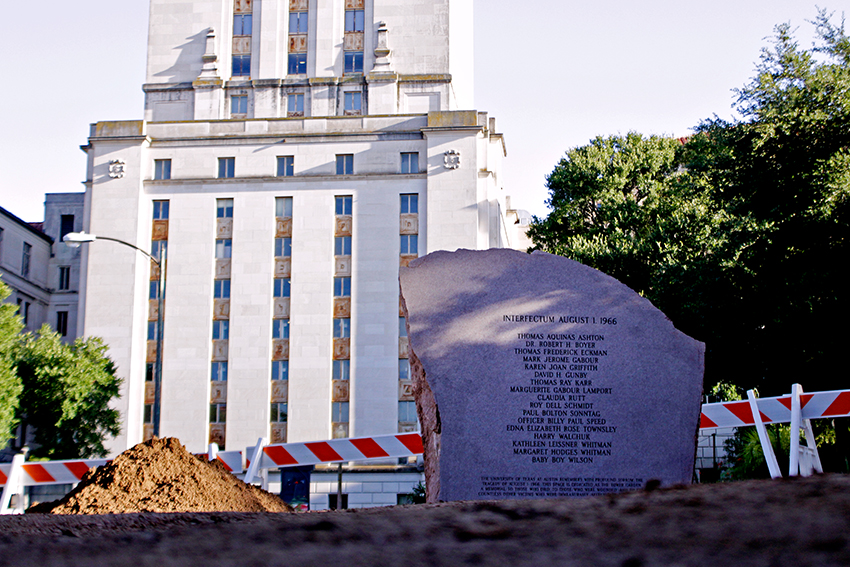Ten years ago, when the Daily Texan Editorial Board last examined how the Tower shooting changed our campus, we had finally arrived at a point where the terror felt on Aug. 1, 1966, was too foreign for the average student for the Tower to strike fear into our hearts. As we welcome a generation of students whose parents may have been born after the shooting, we may not share the memories that longhorns from 1966 have, but know the feelings they had all too well.
We write today about Charles Whitman’s shooting for the first time since Seung-Hui Cho killed 32 at Virginia Tech, since Adam Lanza killed 20 children and six staff at Sandy Hook, since UT student Haruka Weiser was murdered on campus.
Today marks 50 years since Whitman opened fire from the observation deck of the UT Tower in 1966, killing 15 people and injuring 32 others. In 1966, this was unfathomable. Today, our fears are centered on this as an ever-present threat.
In some ways, this past decade has been one defined by mass shootings. Although each shooting is harrowing in its own right, an act of violence like the one carried out by Whitman would not shake the nation like it did 50 years ago. It’s terrible and yet somewhat inevitable — we have become desensitized to this regular gun violence.
Our generation’s formative school and college years have been during a time in which schools have seen more tragedy than ever before, even as crime has fallen overall. We hold a palpable fear that at any time, our universities, movie theaters and even places of worship could turn violent. Yet while this threat looms over all of us, we are presented the opportunity to be united in addressing it.
We should not celebrate tragedy bringing us together. But as it happens again and again, we are given the chance to empathize with more people.
Every community in America, from the African American community to the LGBT community has suffered some kind of violence in the last 50 years. And when they have, we have witnessed our neighbors suffer. The past 50 years have seen black, queer, muslim and transgender people more integrated into American communities — and we are all the better for it.
There seems to be no end in sight for the violence, perhaps until we can improve our nation’s broken system of mental health care, and both gun rights activists and those who favor gun control can compromise effectively to stop these tragedies from happening for good. This work is slow, arduous and highly politicized, but after the past 50 years, we know it is possible.
Solving this next half century’s problems will be an audacious task. As we set out on tackling them, we cannot let their daunting size reduce our tenacity or our hope. The University of Texas can and must be an integral part of it, no matter the scars we have suffered. While the pain of school shootings may have started here, they cannot stop us from changing the world.
















